Sanction syndrome: US warns of sanctions after India, Iran sign landmark Chabahar Port deal
Hours after Iran inked a landmark deal with India to develop and operate its southern port city of Chabahar, the United States warned New Delhi that "anyone" considering business deals with Tehran needs to be aware of the "potential risk of sanctions," once again highlighting Washington's addiction to sanctions.
At a US State Department briefing on Monday, US spokesperson Vedant Patel while answering questions over India’s latest deal with Iran, cautioned of a retaliatory punishment from Washington if it made "business deals" with Tehran.
"We are aware of these reports that Iran and India have signed a deal concerning the Chabahar Port," Patel was quoted as saying.
"Any entity, anyone considering business deals with Iran, they need to be aware of the potential risk they are opening themselves up to, potential risk of sanctions," he added.
The agreement for the Long-Term Bilateral Contract regarding the operation of Chabahar Port, Iran's sole ocean port, was officially executed on Monday between Indian Ports Global Limited (IPGL) from India and the Port & Maritime Organisation (PMO) of Iran.
This contract allows for the operation of Shahid-Behesti port within the Chabahar Port Development Project for a duration of 10 years.
During the duration of this decade-long lease agreement, IPGL committed to investing approximately $120 million to enhance the port's facilities. Additionally, India has extended a credit window of $250 million for collaborative projects that focus on enhancing the infrastructure associated with Chabahar.
Patel confirmed that the sanctions imposed by the Washington on Tehran are still in effect and will be upheld, and refused for exempting New Delhi for this deal.
"US sanctions on Iran remain in place and we will continue to enforce them," he said.
The spokesperson also noted that it would let the Indian government speak on its foreign policy goals.
"I will let the government of India speak to its own foreign policy goals vis-à-vis the Chabahar port as well as its own bilateral relationship with Iran," Patel said in the press briefing.
New Delhi has long considered the importance of developing a port in West Asia, and Chabahar acts as a gateway to landlocked Afghanistan and Central Asia for India, bypassing the port of Karachi and Gwadar in its rival Pakistan.
Being an India-Iran joint venture, the port also plays a crucial role with larger connectivity projects of the International North South Transport Corridor (INSTC).
The INSTC, established by Iran, India, and Russia, serves as a multi-modal transportation network designed to connect the Indian Ocean and Persian Gulf to the Caspian Sea through Iran, and further extend to northern Europe via St Petersburg in Russia.
To date, New Delhi has furnished the port with six mobile harbor cranes and additional equipment valued at $25 million. Moreover, a cumulative total of 2.5 million tonnes of wheat and 2,000 tonnes of pulses have been successfully transported from India to Afghanistan through Chabahar.
India sees the progress of Chabahar as a venture that has the potential to compete with China's investment in Pakistan's Gwadar region.
Meanwhile, ever since the joint project turned into reality in 2003, the US has interfered into India's dreams of operating the port located in Iran's Sistan and Baluchistan province.
India agreed in 2016 to finance the development of the Iranian port but the process was stalled two years later due to the US sanctions reimposed after Washington’s unilateral withdrawal from the 2015 nuclear deal with Iran.
The threat of sanction come in continuation of US sanction policy against Iran as Tehran says Washington is "addicted" to imposing sanctions.
Various Iranian institutes and individuals have been targeted by sanctions since the victory of the Islamic Revolution 44 years ago under various pretexts.
VIDEO | Yemen; a bone in Israeli neck
D-8’s role in Iran’s economy after Cairo summit
China slams US as ‘war-addicted’ threat to global security
China ‘firmly opposes’ US military aid to Taiwan
VIDEO | Press TV's News Headlines
President Yoon Suk Yeol to be removed from office
At least 19 Gazans killed by Israeli airstrikes since dawn: Medics
Leader: Iran neither has nor needs proxy forces


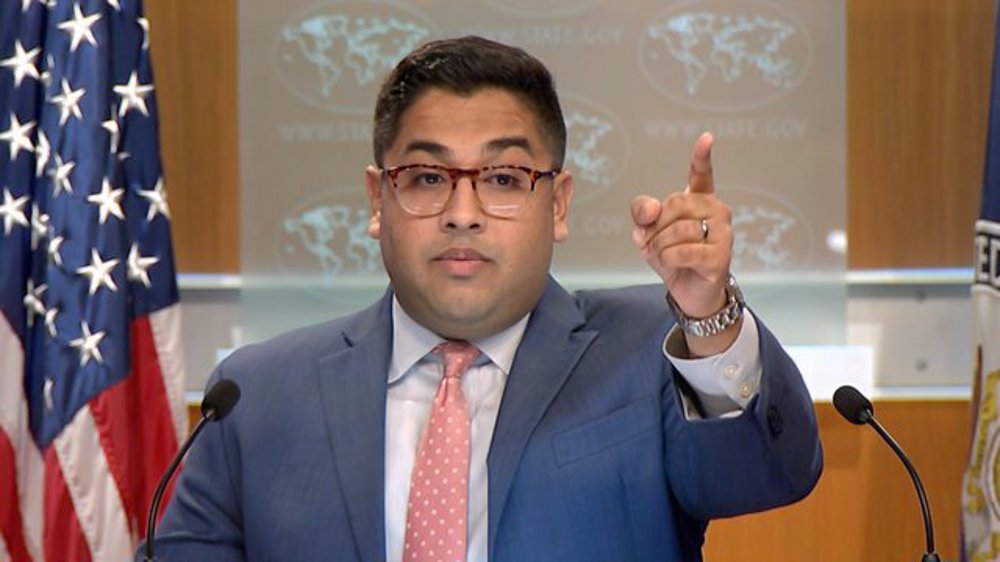
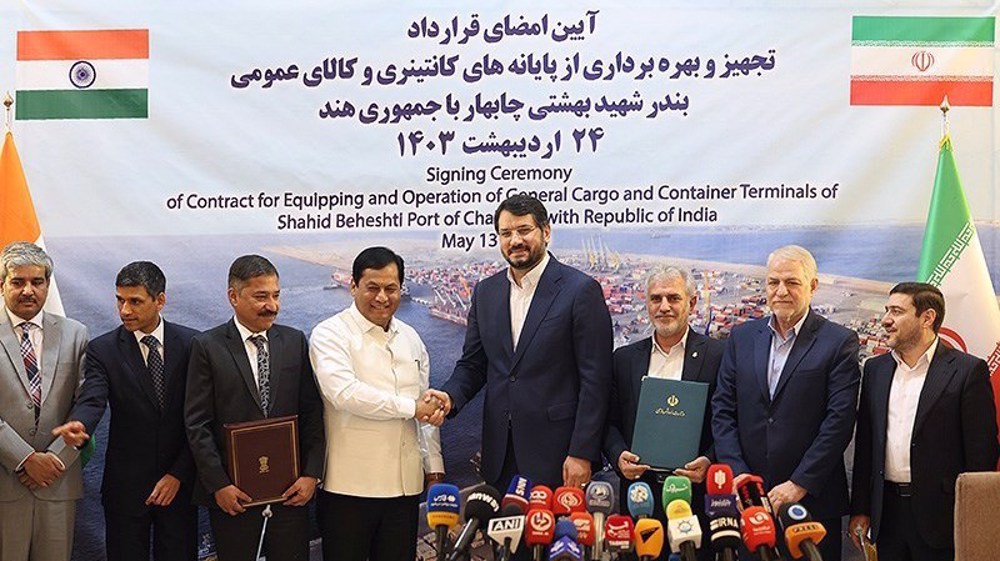
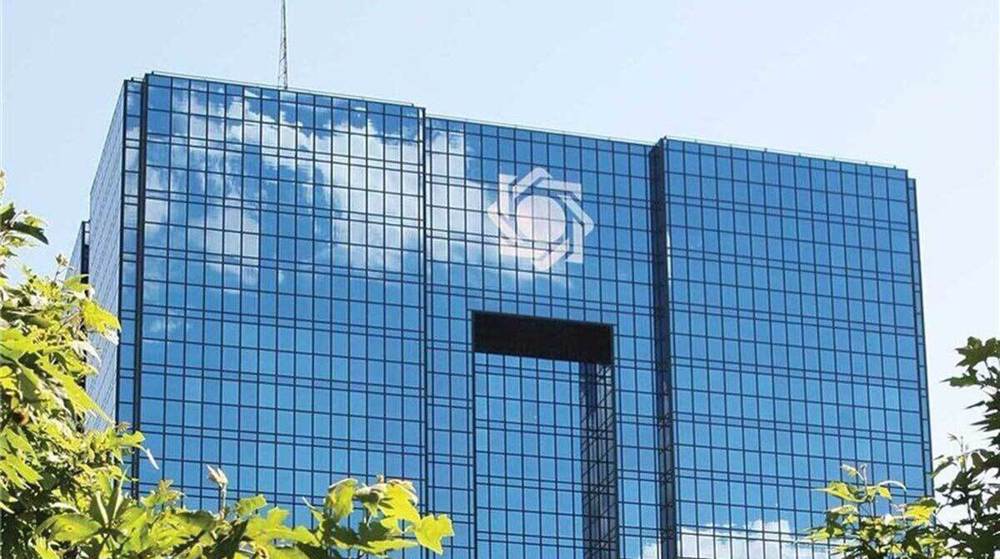
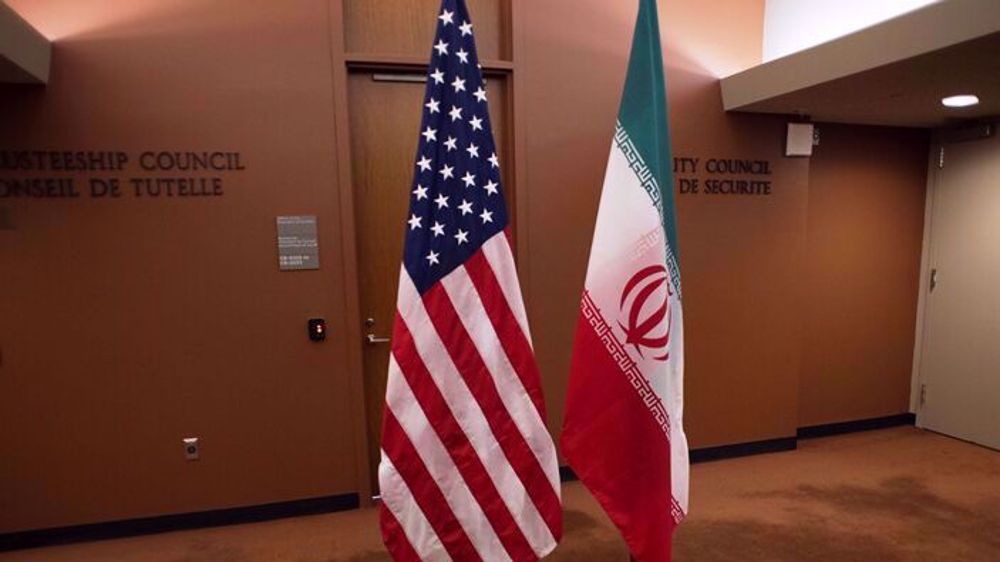




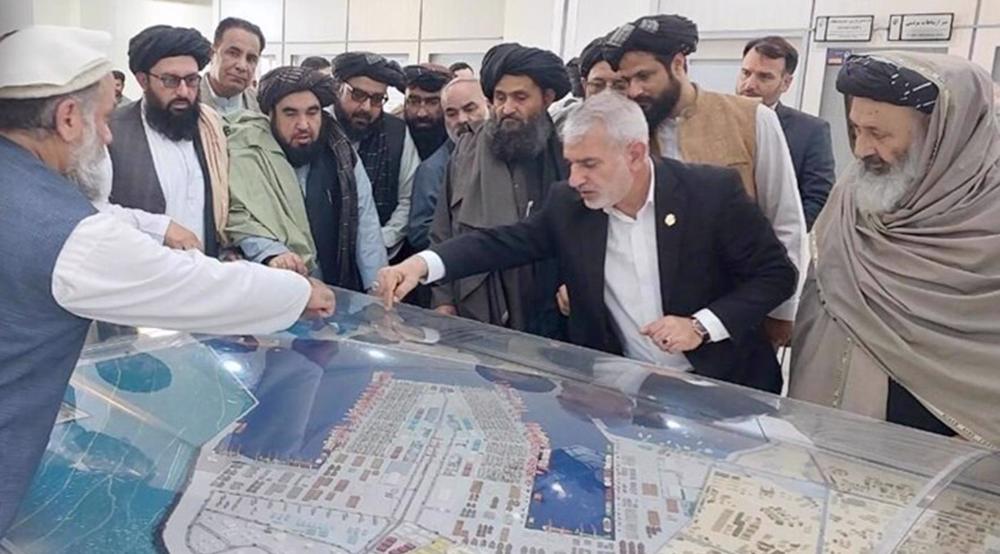
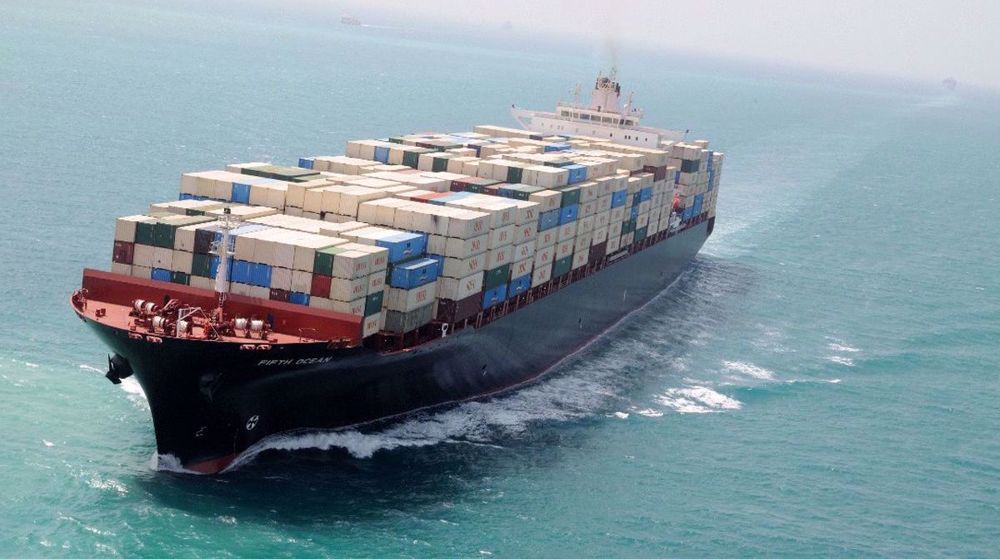
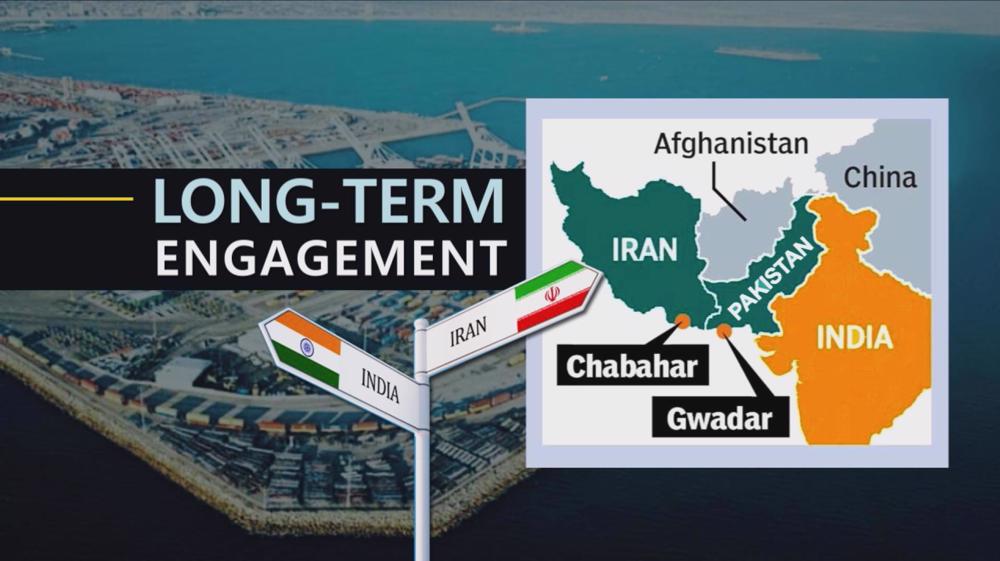
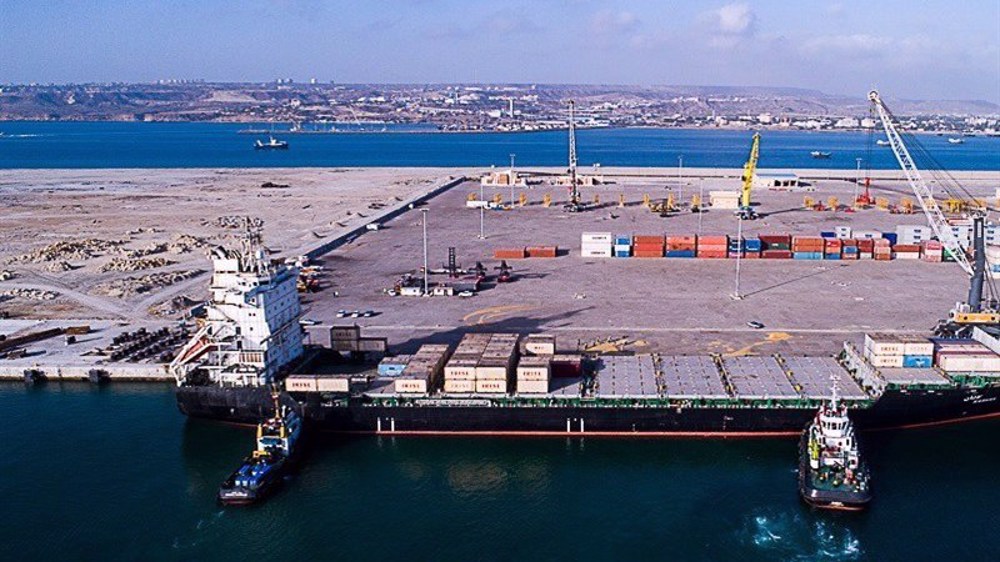
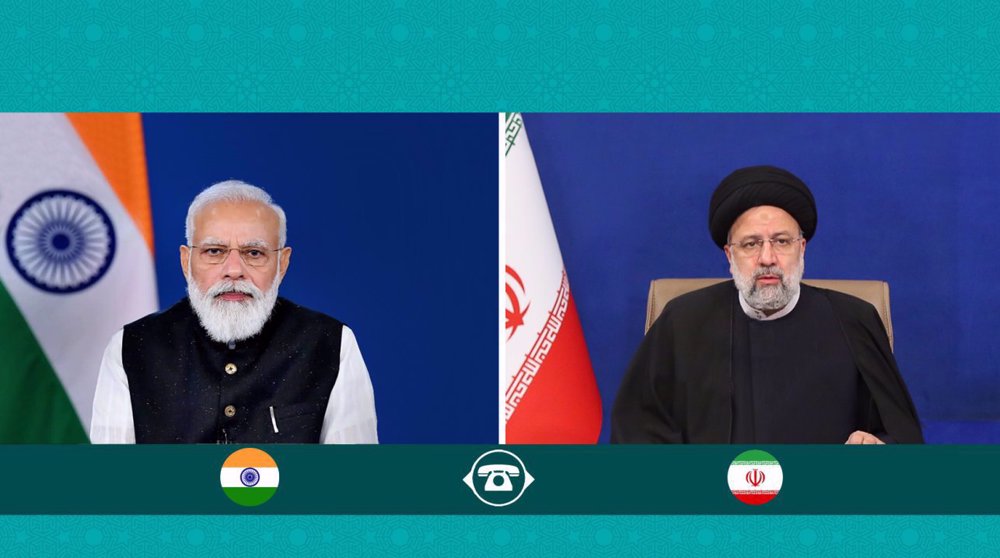
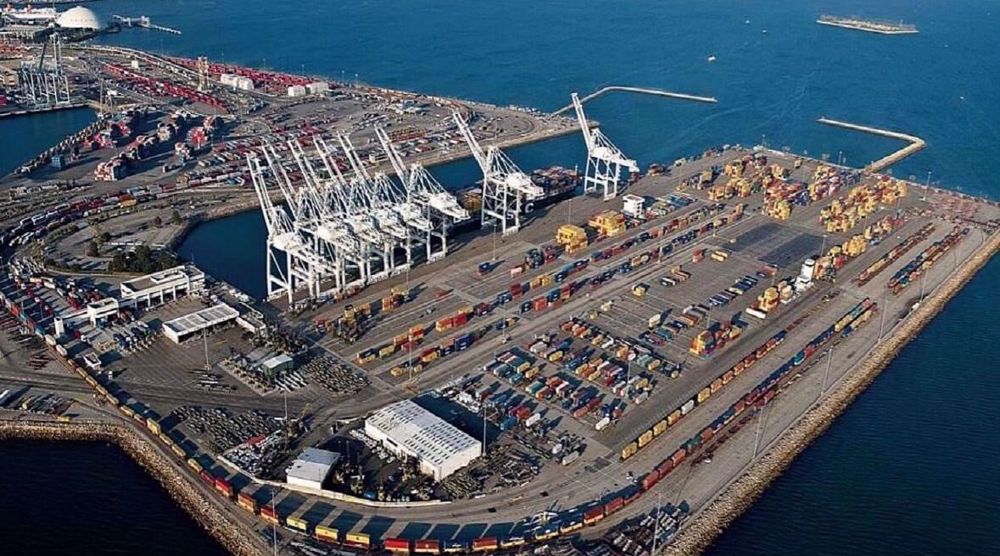
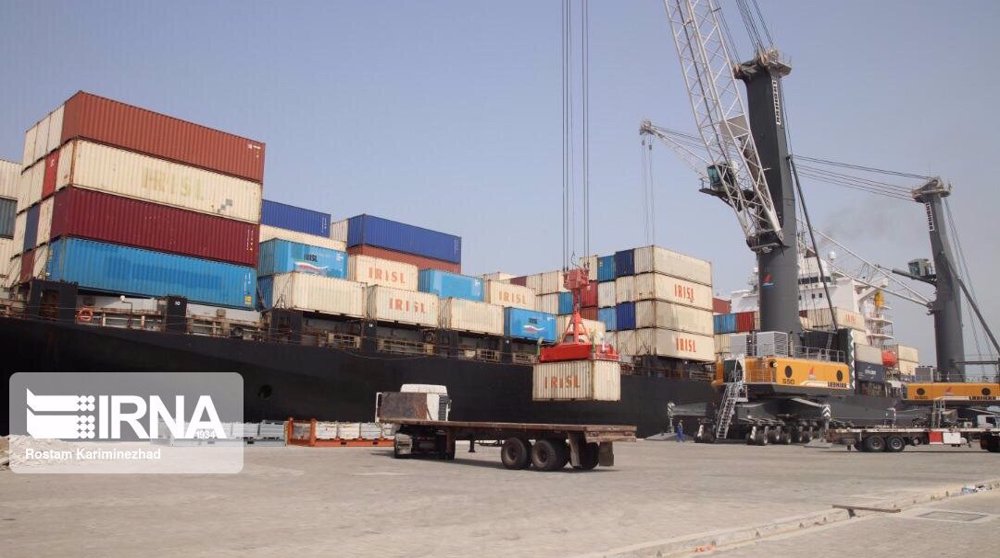
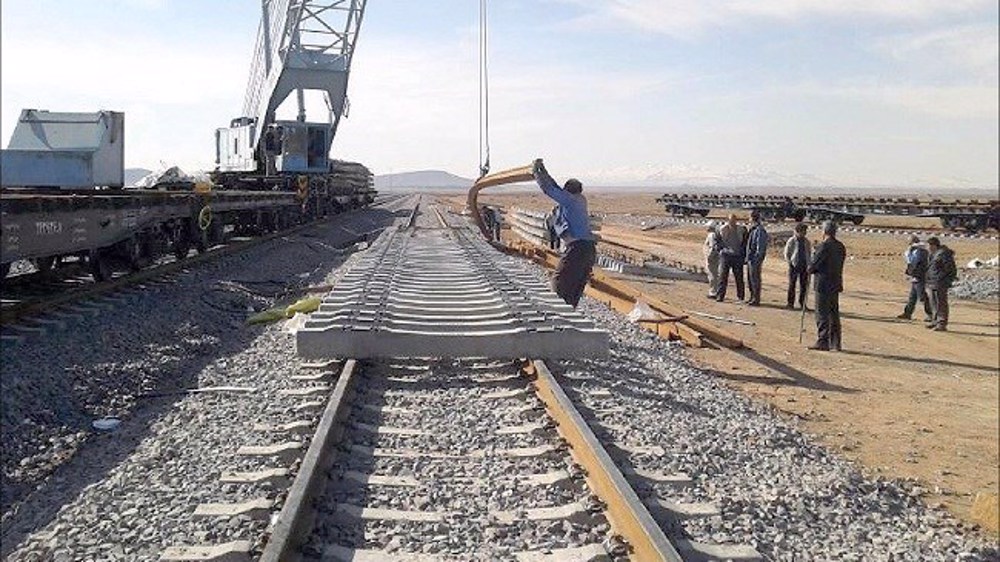

 This makes it easy to access the Press TV website
This makes it easy to access the Press TV website